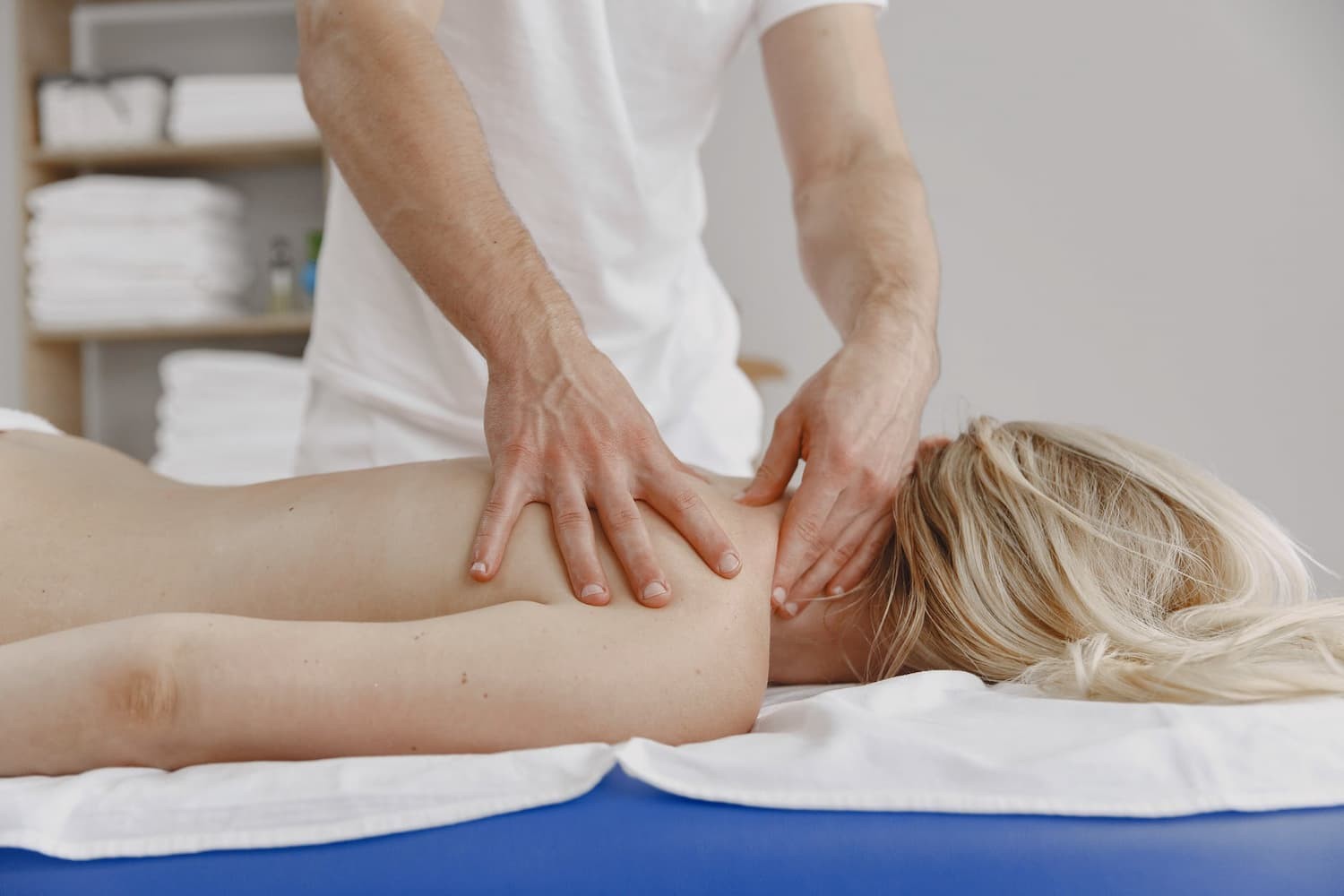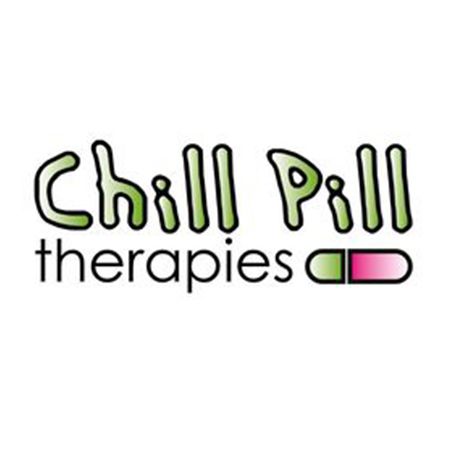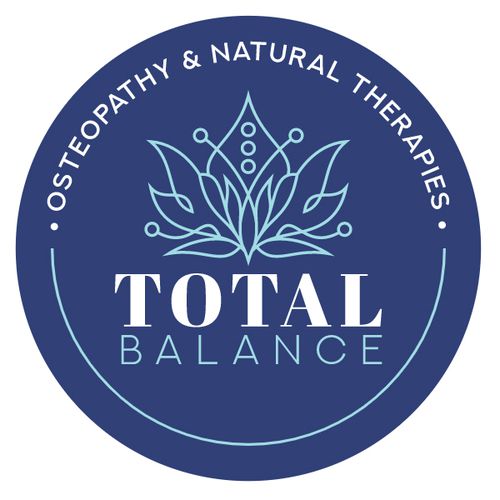What is Remedial Massage?
There are many variations within this style of massage, however, the Australian Natural Therapists Association (ANTA) defines remedial massage therapy as 'a massage based application used to treat a number of conditions affecting the muscles, tendons and ligaments of the body'. Remedial massage therapy is a key component of 'sports medicine', but is beneficial for anyone suffering from chronic pain or injury in a particular area of the body.
Remedial massage therapists use a systematic assessment and treatment of the muscles, fascia (connective tissue), tendons, ligaments to assist in pain, injury rehabilitation and maintenance. Common techniques used in this type of massage include deep tissue massage, joint mobilisation, stretching, dry needling and myofascial release, to name a few.
To understand how to treat patients, a good remedial therapist must know anatomy, physiology and pathophysiology (The functional changes that connect with a condition or injury -- in this circumstance).
What is Remedial Massage Good for?
Unlike a relaxing massage that provides deep relaxation through Swedish massage techniques, remedial massage therapy is a form of therapeutic massage that is primarily used to address health problems resulting from muscle knots, muscle tension or damaged muscle tissues. It can help with sports injuries, headaches, muscle cramps, back pain and a whole range of other health problems.
Depending on the health condition that needs to be addressed, this type of massage can use either deep pressure or mild to medium pressure to improve muscle function. Remedial massage treatments have a number of proven health benefits such as the following:
Improves Joint Mobility
Using joint movement techniques, a remedial therapist can help ease muscle tension and reduce stiffness and pain, which improves joint mobility, muscle recovery and range of movement in the process.
Improves Recovery
When we damage our body tissue, collagen fibres are used to repair the injured area, which can create collagen scarring or scar tissue. This collagen scarring is critical for recovery from injury, but tough in texture, it can create painful, restricted movement. Remedial massage helps to soften and mobilise the collagen fibres, relieving muscle tightness and pain.
Reduces Depression and Anxiety
By working on the deep layers of muscle, a remedial massage technique not only provides relief from muscle related problems but an emotional healing component as well. The benefits of massage, especially this form of massage, go beyond treating chronic muscle pain. Addressing sore muscles and limited mobility increases blood supply in different parts of the body, which leads to the improved movement of the body and functioning of the mind.
The firm pressure employed in this form of treatment reduces cortisol levels as it stimulates feel-good hormones occupied within the muscles, blood and lymphatic system, such as dopamine, serotonin and oxytocin, and releases them into the system. How wonderful it is to be able to create a more relaxed state of being -- with the application of a session of massage, especially during periods of stress, whether internal or external life challenges.
Pain Relief
The skin is full of nerve endings (up to 10,00 per sq. metre!), which can make the touch of massage therapy a rich highly sensory experience that helps to remove pain and support the body's natural healing process.
During every movement of a massage, the cutaneous(skin), the nerve endings are sending thousands of impulses to the brain creating pleasant, calming sensations; slowing the breath and shifting into the 'rest and digest parasympathetic state'. Massage works by affecting the nervous system directly and dampening any pain that one is feeling.
What are Some of the Issues in Researching Massage?
Like any treatment regime, massage therapy can and should be studied using rigorous scientific methods. However, massage therapists, because of the unique nature of their therapy and how it is delivered, face challenges when conducting research.
Most of the research to date has included small, preliminary studies that lack the methodological quality to draw firm conclusions regarding massage's effectiveness.
However, in recent years, larger studies of higher quality have begun to emerge, as have thorough and balanced reviews of existing literature, which evaluate the effectiveness of massage therapy.
Recent trials have concluded that different styles of massage therapy generally can be of benefit to many health concerns. As it appears to be in patients with non-specific back pain, trials continue. For updated information regarding ongoing randomised trials, go to clinicaltrials.gov, a service of the U.S. National Institute of Health (search under 'massage').
Common Questions / Answers About Remedial Massage Treatment
1. How do I choose a remedial massage therapist?
A: A combination of research, it is a personal close contact choice, relevant qualifications, experience, references -- other respected people are often a good guide / start.
(I personally have been a massage therapist - remedial / sports for over 20 years - word of mouth has been my biggest source in that time)
2. How often do I need to have a remedial massage?
A: A good question -- and the answer is varied upon several factors --
- Do I feel good / better after a massage?
- If yes, am I physically / perhaps mentally pushing my body / stress levels with my weekly pursuits -- i.e. rigorous physical activities that create extra tension within my body ( work related or sports)?
- How much does an hour long massage cost in my area and can I afford it? If so, should I get weekly, monthly or fortnightly massages?
3. What should I do after receiving remedial therapy?
A: A massage can leave you dehydrated as toxins are released from your body. That is why you should drink plenty of water to replenish the lost fluids in your body. While drinking water is advisable, taking a shower right after a massage to wash off the essential oils used in the treatment session is discouraged. Wait for about an hour to pass before taking a warm shower.
Summary
I have regulars that I work with for different styles of massage, from massage for relaxation to remedial-sports massage. Some of them get a weekly massage, others come in every 6-8 weeks. Some prefer ongoing treatments, especially those who want to boost their sports performance, while others combine their full-body massage sessions with other modalities. I would strongly encourage acupuncture, osteopathy, yoga, chiropractic, bio-resonance therapy and a healthy lifestyle, which are all inclusive!
Getting a regular massage will end your ordeal with tight muscles, carpal tunnel syndrome, sciatic pain, restricted movement in joints or other health conditions. What's more, I'll be more than happy to provide you with useful health tips to restore your health on all levels.
References:
Roni Evans , DC , MS, PhD
A.N.T.A (Australian Natural Therapists Association)











